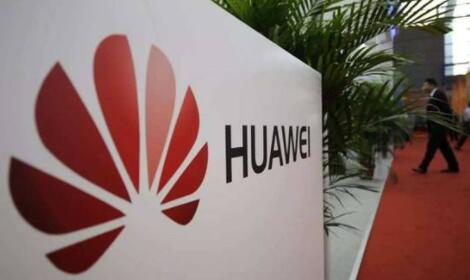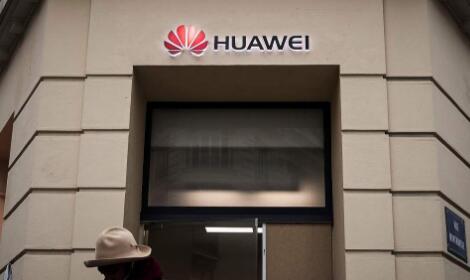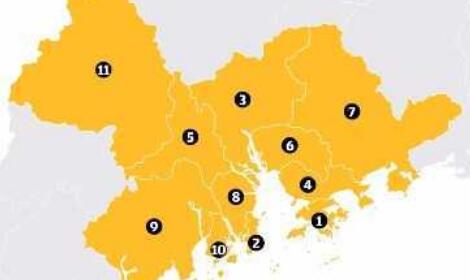中印冲突的根源:回首1962 [巴基斯坦媒体]
在由印巴冲突所主导的南亚次大陆上,1962年短暂而激烈的中印战争看起来被忽视了,关于这场战争如何导致本地区的局势演变成今日这样的分析寥寥无几。目前在洞朗高地产生的对峙,和这场战争存在着必然的相似之处,使得有必要再回首重新考察这次冲突。
IN a subcontinent dominated by Pak-India conflicts, the short, sharp Sino-Indian war of 1962 remains rather neglected, with little analysis of how it helped shaped the region into what it is today. The recent stand-off at the Doklam plateau, and the inevitable parallels that are being drawn, makes it worthwhile to take another look at this conflict.
在由印巴冲突所主导的南亚次大陆上,1962年短暂而激烈的中印战争看起来被忽视了,关于这场战争如何导致本地区的局势演变成今日这样的分析寥寥无几。目前在洞朗高地产生的对峙,和这场战争存在着必然的相似之处,使得有必要再回首重新考察这次冲突。
The road to the ’62 war starts in Tibet — in fact, it starts because of the road to Tibet. No sooner had Mao proclaimed the People Republic of China (PRC) in 1949 that troops were sent to conquer this land, via a road that passed from the western Chinese province of Xinjiang through Aksai Chin and on to Tibet.
导致1962年战争的路是从西藏开始的——事实上,还真是因为通往西藏的路所导致的。在毛泽东宣布成立中华人民共和国后不久,中国军队就被派遣来征服这片土地,而他们是沿着中国西部省份新疆的路,穿过阿克赛钦到达西藏的。
When a Tibetan uprising took place in 1959, this was again the route Chinese reinforcements took. The revolt failed and the Dalai Lama fled to India where he was granted asylum, much to China’s chagrin. Soon after, India starts to strengthen its position along the McMahon line, the border between Indian and China. In particular it expands its positions in Ladakh, which borders Aksai Chin.
在1959年西藏起义发生之时,中国军队的增援又是通过这条路线抵达的。叛乱最终失败了,达赖喇嘛逃到了印度,在那获得了印度的庇护,这令中国非常愤怒。之后不久,印度开始加强在中印边界的麦克马洪线沿线的军事力量,特别是扩展了在拉达克的军事存在,到了阿克赛钦一带。
The Indo-China war’s role in regional politics is often ignored.
中印战争在地区政治中扮演的角色经常被忽视。
To the Chinese, this potentially threatened a crucial supply route to Tibet, and thus their hold over it. Then there was the fact that India was a Soviet ally, and though China and the USSR shared the communist ideology, a cold war waged between the two nations. Pressed on its long border with the USSR, China saw India was a potential threat that needed to be whittled down at some point, and that point came in 1962.
对中国人来说,这对进入西藏的关键供应线造成了一个潜在威胁。当时印度是苏联的盟友,而虽然中国和苏联同属于共产主义意识形态,但是两国之间已经开始了一场冷战。在受到来自和苏联共有的漫长边境线上的压力之时,中国视印度为一个潜在威胁,在某种意义上需要收拾收拾敲打一下,这导致了1962年的战争。
The Chinese struck in force, one army moving into Ladakh and another striking across the McMahon line from Tibet at four points. Unprepared and underequipped, with primary units deployed against Pakistan, the Indian forces were hopelessly outmanned and outmatched. The shock was such that a larger invasion was feared, but Beijing then announced a unilateral ceasefire, withdrawing to maintain a strategically favourable position along the sprawling border.
中国集结军队进攻,一支军队进入了拉达克,另一支从西藏一侧的四个地点跨越了麦克马洪线。印度军队毫无准备,也缺乏装备,主要军队还部署在对抗巴基斯坦一带,这导致印军陷入绝望,他们在人数上和战斗力上都被远远超越。事态是如此的令人震惊,引发了对可能的更大规模入侵的恐惧,但北京方面最后宣布了单方面停火,并撤出以在边界保持战略优势。
Up until then, Pak-China relations had been cordial but wary, and no warmer than Sino-Indian relations in the days of ‘Hindi-Chini Bhai Bhai.’ After all, Pakistan was a card-carrying capitalist US ally, and China had fought a bloody war against the US in Korea in the 1950s.
从那以后,中巴关系一直保持着亲切而小心谨慎的关系,这种关系并不会比当时处于“中印亲如兄弟”时期的中印关系更好。毕竟,巴基斯坦属于资本主义阵营,还是美国盟友,而中国和美韩在20世纪50年代打了一场血流成河的战争。
Moreover, China also had territorial claims on parts of Azad Kashmir, and Tibet and Korea had demonstrated China’s willingness to take decisive action to secure its interests.
此外,中国还对阿扎德-克什米尔的部分地区提出了领土要求,西藏和韩国证实中国有着强烈意愿执行行动来捍卫自身的利益。
The build-up to ’62 changed this, and while Pakistan did not engage in hostile action against India, it did pile pressure by announcing the holding of border negotiations with China. When the war ended with India being militarily and diplomatically humiliated, Pakistan was quick to conclude a border treaty with China in 1963. Justifying the deal, then foreign minister Zulfikar Ali Bhutto said Pakistan “would not like to see the tantrums and crisis [that marked the dispute] between the PRC and India”.
这些因素逐渐积累,到1962年终于形成了质变,巴基斯坦一方面没有对印度的行动开展反制措施,另一方面却因为和中国开展边界谈判而受到了来自中国的巨大压力。当被印度在军事和外交上双重羞辱之后,战争一结束巴基斯坦就马上于1963年和中国缔结了边界协定。对于这份协定,当时的外交部长布托是这么辩解的:“巴基斯坦不想看到中印之间因为争议而导致危机出现。”
The lessons learned by Pakistan were that (a) disputes with China were to be avoided, (b) this state was a potential hedge/ ally against India and (c) that the Indian army was not as strong as it had seemed during its capture of Goa. This latter conclusion was crucial, as the idea of the Indian army being susceptible to strategic surprise played a significant role in the calculations that led to the ’65 war.
巴基斯坦吸取的经验教训是:1.应该避免和中国产生争端;2.中国是一个能对冲印度的力量,或者说是潜在盟友;3.在印军占领果阿的过程中,印军的实力看起来并不是那么强。最后一个结论是非常关键的,印军容易受到战略突然性的影响这一观点在1965年战争的推算中扮演了一个重要角色。
The war also seems to have led to a feeling that China might overtly aid Pakistan in a future conflict with India. While this proved untrue, it was something that New Delhi also feared, and there was much speculation in India at the time that the Sino-Pak border agreement had secret military clauses too.
这场战争似乎也导致中国可能在未来在印巴冲突中公然援助巴基斯坦。尽管这被证实不是真的,但仍然是新德里方面所恐惧的事情。印度方面也猜测,中巴签署的边界协定包含了一些秘密军事条款。
For India, while this war resulted in military humiliation and a serious loss of prestige, it served to unify the nation, feeding nationalist sentiment and spurring the process of militarisation. That, in turn, had the effect of slowing Indian economic growth somewhat as funds were diverted to the military.
对于印度来说,尽管这场战争造成了军事上的巨大屈辱,也导致印度名誉扫地,它也促进了印度的民族团结,滋养了民族主义情绪,推动了军事化进程。这样的后果就是,印度经济增长受到了拖累,因为一部分资金被拨给军方了。
On the international front, Anglo-American military aid given to India after the war brought India closer to the West, while simultaneously souring Pakistani attitudes towards its Western allies. Ayub Khan bluntly told both Washington and London that they must abandon the aid-India programme to keep Pakistan’s friendship.
在国际舞台上,英美在战后给予印度的军事援助使得印度更加靠近西方,也使得巴基斯坦的态度转向,对它的西方盟友感到厌恶。Ayub Khan明确的通知华盛顿和伦敦方面,如果要保持住巴基斯坦的友谊,他们必须放弃对印度的援助计划。
Consequently, when the US State Department protested at the signing of economic and trade agreements with China, the complaints were shrugged off. When Zhou Enlai was invited to visit Pakistan in 1964, the US protested again to no avail. Pakistani officials and newspapers adopted a clear pro-Beijing line, questioning the value of a Western alliance that couldn’t resolve the Kashmir dispute.
结果是,美国国务院对中巴签署贸易自由协定进行抗议,被巴基斯坦置之不理。周恩来于1964年受邀请访问巴基斯坦,美国再次抗议,又是徒劳无功。巴基斯坦官方和报纸都表明了清楚的亲中立场,质疑西方世界无法解决克什米尔争端。
Trends and attitudes were established in this period that have marked the dynamics of the subcontinent ever since, and the alliances and enmities of today can be said to find their genesis in 1962.
这个时期已经形成的事态趋势和各方态度,为南亚次大陆的走向打上了记号,今日的联盟和敌对都能在1962年找到它们的根源。
Khem
about 10 hours ago
India lost the 1962 war because Nehru never thought even in his dreams that China would attack us after excepting the doctrine of "Five Principles of Peaceful Coexistence".
But there is a big difference in India of 1962 and in India of 2017.
印度输了1962年战争是因为尼赫鲁做梦都没想到中国秉承“和平共处五项基本原则”,居然还会打我们。
但是2017年的印度可和1962年的印度不一样了。
Melbournewala's bitter truth
about 9 hours ago
China is no trustworthy relations with Vietnam Malaysia Brunei Japan Philippines India USA... and there are others who consider them parasites.
India on the other hand is known for tolerance and is considered responsible country.
Thanks to 1962, India has learnt harsh lessons and has built itself into all round growth of its tangible and intangible defense strengths. Chinese know the details very well.
中国和越南、马来西亚、文莱、日本、菲律宾、印度、美国的关系都很差,还有一些其他国家也鄙视他们。
反观印度,一直被认为是宽容和负责任的国家。
感谢1962的那场战争,印度已经学到了建设自身的有形和无形的防御力量。中国可是非常清楚印度的能量。
tomUHTO TAWMAYTO
about 8 hours ago
SENDING THIS COMMENT FOR THE SECOND TIME:
India and China fought a second war in 1967 -- at Nathu La. It was a decisive defeat for the Chinese.
PS: The Indian Army is not to be discounted either...
看我发的这贴,自己顶一下
印度和中国在1967年在乃堆拉山口打了第二场战争,当时是中国输了。
ps.我们印度军队也是不能被小瞧的。
brr
about 12 hours ago
Another major side effect of the 62 war - Indians will NEVER ever trust the Chinese - all their Hindi-Chini bhai bhai was utter drive and nonsese used well to lull Nehru to sleep.
1962年战争的另外一个巨大影响是,印度人绝对不会再相信中国人了——他们说的什么中印亲如兄弟之类的鬼话都是瞎扯淡,也就是忽悠一下尼赫鲁。
alba
about 12 hours ago
Unprepared and underequipped, with primary units deployed against Pakistan, the Indian forces were hopelessly outmanned and outmatched. _Indian soldiers were also fighting experienced Chinese field grade officers and troops who fought the Korean War against the US, NATO and South Korea. Indians still around who fought that war will tell you the Chinese soldiers were the toughest they ever fought. Ask them.
印度军队毫无准备,也缺乏装备,主要军队还部署在对抗巴基斯坦一带,这导致印军陷入绝望,他们在人数上和战斗力上都被远远超越。——印度士兵当时面对的可是经历了抗美援朝战争,和美国、北约、韩国对抗,身经百战的中国士兵。经历过那场战争,迄今还活着的印度人会告诉你,中国士兵是他们有史以来遇到的最坚韧的一群对手,不信你问问他们。
Vineeth
about 6 hours ago
A crucial point regarding the 62 war that hasn't been mentioned is how it coincided with the unfolding Cuban missile crisis. India didn't have a particularly strong relationship with USSR till then, and was maintaining an equi-distant approach. Tension had been building up between an inept Nehru administration and an assertive China for some time, though none in New Delhi expected it to translate to a military conflict. Then came the Cuban missile crisis in 1962 effectively tying down the forces of US and USSR. China sensed the opportunity and struck knowing well that neither US nor USSR would be in a position to intervene on India's behalf. India was humiliated and Chinese forces overran both Aksai Chin and Arunachal Pradesh. But then US and USSR reached a deal and the missile crisis ended. Confident that it has taught India a lesson, and sensing that prolonging the war would only result in one of the powers coming to the aid of India, Chinese withdrew from Arunachal Pradesh.
这里没有提到的1962年战争的一个关键点是,它与古巴导弹危机恰巧在时间点上重合。直到那时印度都没有和苏联建立一个强有力的外交关系,只是保持了普通的关系而已。无能的尼赫鲁政府和自信的中国之间的紧张局势已经持续了一段时间,而印度这边却没有人认为这将导致一场军事冲突。紧接着就是古巴导弹危机,这个直接导致美国和苏联之间投鼠忌器。中国敏锐的抓住了这个机会,判断出美国或苏联都会因为忌惮对方而不会插手帮助印度。之后就是印军屈辱的失败,中国军队进入了阿克赛钦和阿鲁纳恰尔邦。但之后美苏签署了一份协定,解决了导弹危机。此时中国相信已经给了印度一个教训,并且如果拖下去可能会导致美苏其中一方加入印度一方,所以中国军队从阿鲁纳恰尔邦撤出去了。
R S Chakravarti
about 4 hours ago
@Vineeth China captured Aksai Chin long before that, maybe in 1949. India became aware of this many years later. This was really a great blunder, not bothering to defend our territory and not even occupying it!
(回上贴)中国早就控制阿克赛钦了,好像是在1949年。印度很久以后才知道这块地方。真是一个巨大的失误,不仅没有防守我们的领土,甚至都没去占领它!
版权声明
我们致力于传递世界各地老百姓最真实、最直接、最详尽的对中国的看法
【版权与免责声明】如发现内容存在版权问题,烦请提供相关信息发邮件,
我们将及时沟通与处理。本站内容除非来源注明五毛网,否则均为网友转载,涉及言论、版权与本站无关。
本文仅代表作者观点,不代表本站立场。
本文来自网络,如有侵权及时联系本网站。
图文文章RECOMMEND
热门文章HOT NEWS
-
1
他们认为,协商失败的峰会实际上符合中国的利益,而且北京的影响力将增加,因...
- 2
- 3
- 4
- 5
- 6
- 7
- 8
- 9
- 10
推荐文章HOT NEWS
-
1
这是中国中部河南省郑州的一个普通的星期六。富士康工厂大楼上空笼罩着...
- 2
- 3
- 4
- 5
- 6
- 7
- 8
- 9
- 10











